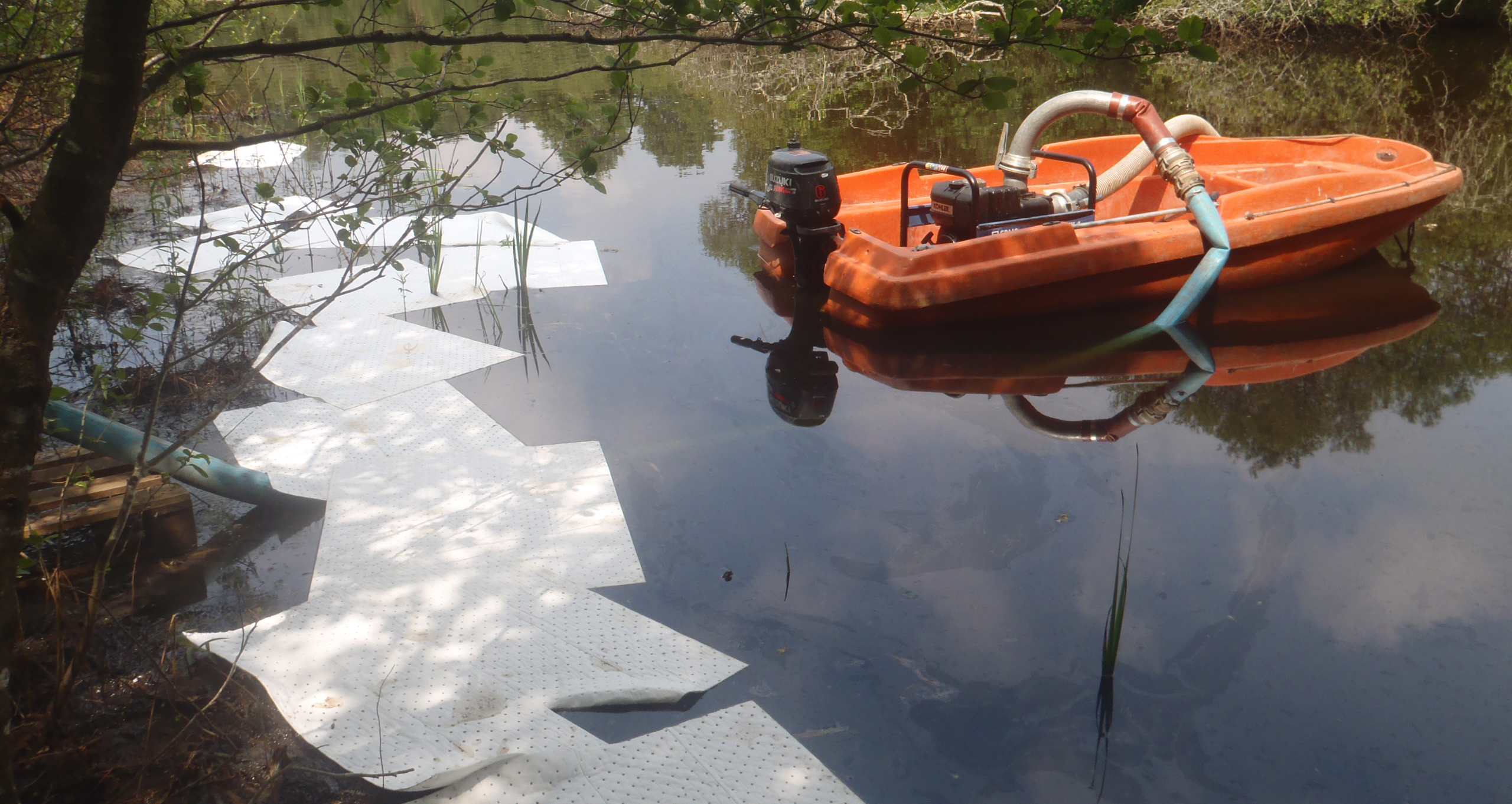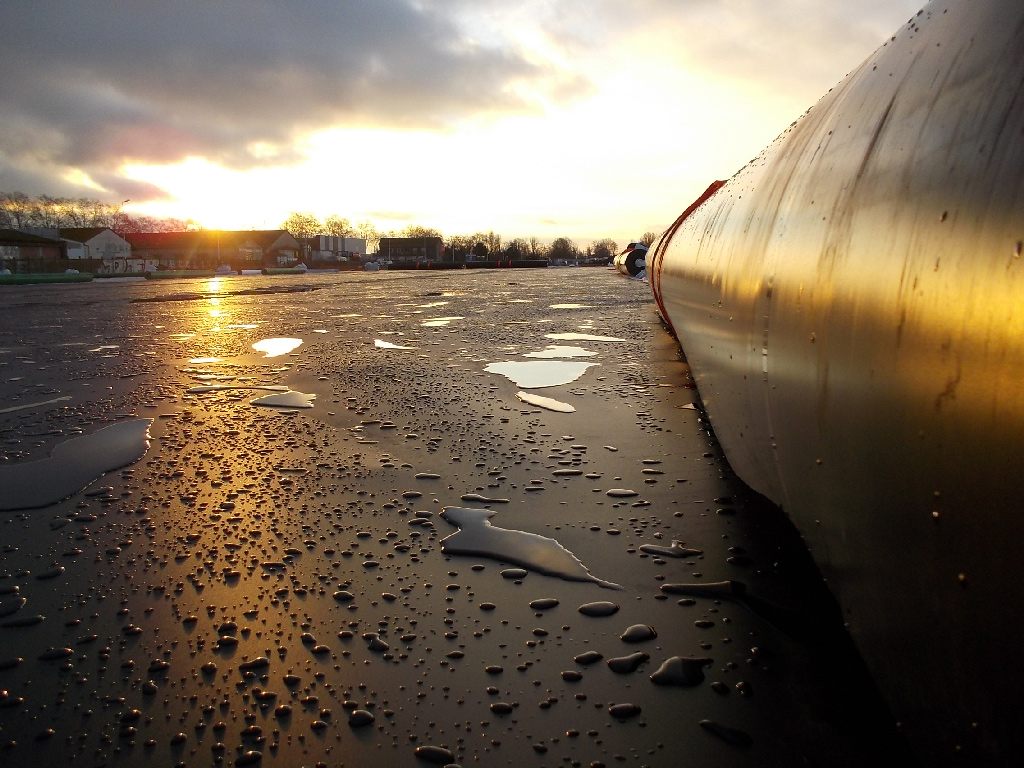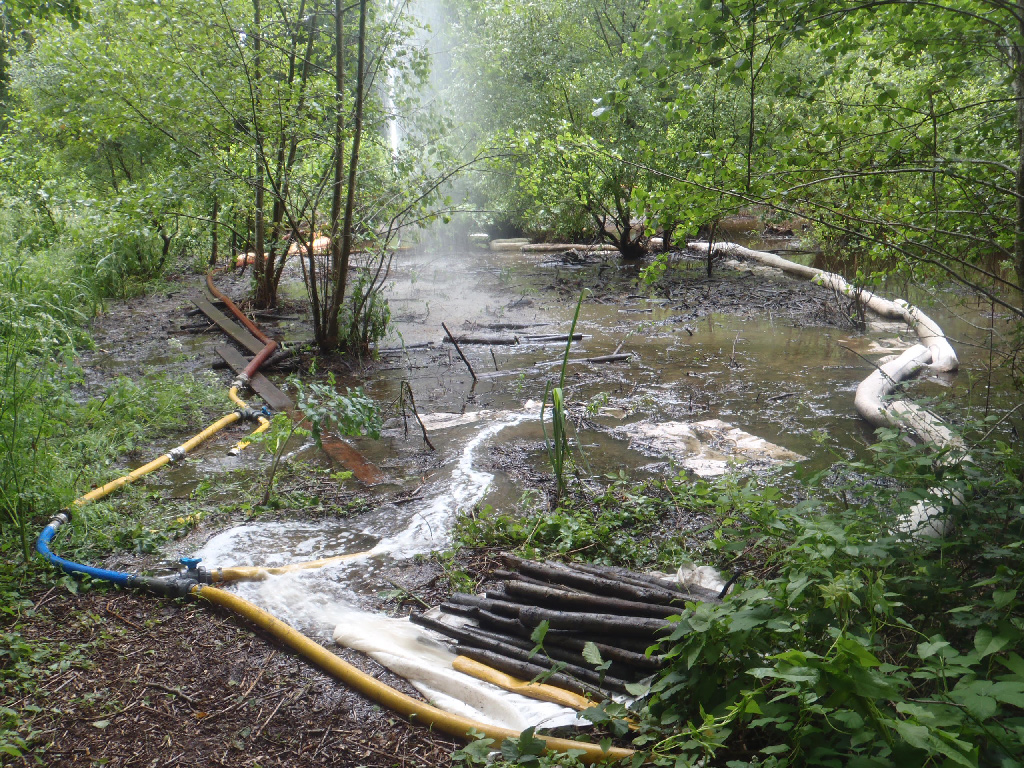Water Management
Chronic or accidental water pollution
The fight against accidental surface water pollution, likely to be generated by the activities of industrial sites, is a major water policy objective. BURGEAP assists you to assess this risk and guides you in your compliance process.
Site vulnerability to accidental pollution
Deciphering local or national regulations governing your installation (municipal sewerage regulation, ICPE, prefectural order) or organizing environment’s protection.
Identification and characterisation of:
- Major potential water pollution sources.
- Main routes for polluted effluents transfer (network, open brook).
- Environmental context: neighbourhood and receiving environment (possible remarkable or particularly vulnerable areas).
- Existing retention structures, in order to verify their relevance and efficiency.
Accidental scenarios choice:
To develop an effective strategy to combat this type of pollution, a « theoretical » accidental scenario must be determined. BURGEAP guides you in this approach in compliance with the methodological principles in this matter.
Suggested protective measures
Depending on the results of the vulnerability diagnosis, the regulatory analysis and the accidental pollution scenario, it may be necessary to set up specific arrangements and resize existing structures, in order to improve at risk products storage capacity, their collection and their treatment-disposal. BURGEAP is at your disposal to enlighten you on the range of technical solutions available and to help you choose the most suitable, both environmentally and economically.
Flood risk management–Technical design and regulatory applications
BURGEAP carries out numerous studies for public and private entities (companies, developers and industrial platforms near watercourses…).
- State of play and hydrological and hydraulic diagnosis
- Flood risk line calculation
- Flood zones and hazards mapping (by modelling and hydrogeomorphological approach
- Flood control design proposals
- Comprehensive development scheme for flood risk management at the catchment scale
- Project compliance with the Flood Risk Prevention Plan (PPRI) requirements analysis, hydraulic transparency and definition of possible compensatory measures consistent with the Avoid, Reduce, Compensate sequence
- Flood risk vulnerability diagnosis and action plan definition
- Runoff and sludge control works management
- Water Act application development and assistance throughout investigation
Storm water management- Technical design and regulatory applications
Water networks management (cooling process, fire network, rainwater) is an important issue for industrial sites. Our hydraulic experts will help you define the right solutions to your problems.
- State of play and network diagnosis (dimensional and structural)
- Network mapping
- Network flows modelling and flood control arrangement proposals
- Alternative techniques proposals to the water management network
- Runoff management studies and project management (retention basins in rural and urban areas, motorway basins, pumping stations)
- Water Act application development and assistance throughout investigation
Aqueous industrial discharges reduction and compliance
We support you in making your aqueous waste compliant with the regulation (RSDE, prefectural order, complementary “drought” order) and control your water consumption.
- Process water recycling study
- Production water requirements identification and characterisation
- Pollutant releases identification and characterisation
- Technical solutions design
- Modelling of considered solutions
- Investment and operating costs estimation
With experience in dozens of water treatment studies, we provide you with our industrial processes and treatment devices expertise for the implementation of an operational and optimal solution. Our support can, depending on your autonomy, cover every step of the studies:
- Techno-economic study
- Pre-engineering design (including on-site pilot testing)
- Assistance for project management
- Existing process optimisation audits



